Neuroscience Futures Seminar Series

Spotlighting junior scientists and clinician-scientists
The Department of Neurology in the Oregon Health & Science University School of Medicine sponsors this lecture series which is designed to spotlight junior scientists and clinician-scientists.
The seminar series originated in the fall of 2021 with the broad goal of providing a platform for junior scientists and clinician-researchers to showcase their work and network with the local OHSU neuroscience community. We held four lectures per academic year from 2021-2024 and three lectures in 2024-25.
2025-2026 seminars
If you have questions about this series, please reach out to Anusha Mishra or Gary Westbrook .
Recordings of Past Seminars
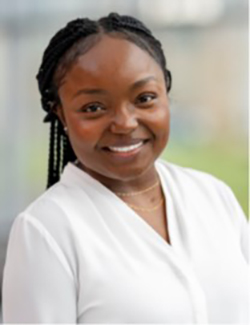
December 9, 2025
Mechanisms of Oncostatin M signaling in the human dorsal root ganglia: implications for neuropathic pain
Juliet Mwirigi, Ph.D., HHMI Hanna Gray Postdoctoral Fellow, Washington University School of Medicine
Neuropathic pain remains difficult to treat, and growing evidence suggests that combining insights from rodent models with studies in human sensory tissues may be essential for advancing new therapies. Juliet Mukiri Mwirigi, Ph.D., focuses on uncovering the cellular and molecular mechanisms that drive persistent pain and on identifying receptor targets with strong translational potential for human patients. She earned her B.S. in Biology from the University of Texas at Dallas, where her work in the lab of Dr. Theodore (Ted) Price sparked her interest in pain biology. Her doctoral research defined how MAP kinase signaling and eIF4E-dependent translational control maintain long-lasting nociceptor sensitization in neuropathic pain. She combined transcriptomic, proteomic, and functional approaches to show how inflammatory mediators, particularly Oncostatin M, reshape gene expression and excitability across sensory neuron and non-neuronal populations. During her Ph.D. training, she played a key role in establishing workflows for procuring primary nervous system tissues and contributed to early efforts in the NIH HEAL PRECISION Human Pain Network, which builds molecular, cellular, and functional datasets from these donor-derived tissues to advance validation of clinically relevant therapeutic targets.
Dr. Mwirigi is now a Postdoctoral Associate in the lab of Robert Gereau, Ph.D., at Washington University School of Medicine and an HHMI Hanna Gray Fellow. Her postdoctoral work expands her mechanistic training into sensory neurobiology and builds on her involvement in the PRECISION Network by mapping receptor-level mechanisms in human and mouse dorsal root ganglia, with a focus on Cannabinoid type-1 (CB1) receptors. Using multiomic approaches, she investigates how endocannabinoid signaling shifts with injury and inflammation and evaluates peripherally restricted CB1 agonists as side-effect sparing analgesics.
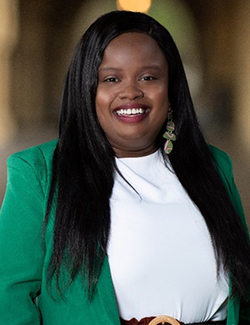
May 6, 2025
Microglia birth and maturation in the adult visual cortex
Monique Mendes, Ph.D., HHMI Hanna Gray Postdoctoral Fellow, Stanford University
Microglia are long-lived immune cells that originate in the periphery and migrate into the brain during early development. Despite their essential roles in brain health and disease, little is known about how microglia self-maintain after colonizing the brain. To investigate this, we developed a novel in vivo microglia depletion and chronic imaging paradigm. We show that adult microglia replenish through local, stochastic cell division during repopulation. These newly born cells rapidly assume mature functions, bypassing the slower developmental maturation process, and may contribute to neuropathology, particularly in the context of Alzheimer’s disease (AD).
Dr. Monique Mendes is an HHMI Hanna Gray Postdoctoral Research Fellow in Dr. Carla Shatz’s lab at Stanford University. Her current research explores the earliest transcriptional and morphological changes in neurons using two mouse models of AD. She earned her Ph.D. in Neuroscience from the University of Rochester with Dr. Ania Majewska, where she studied microglial ontogeny and maturation. Dr. Mendes has received numerous honors, including the NIH D-SPAN F99/K00 Award, HHMI Gilliam Fellowship, 2024 Doupe Fellowship, Doty Award for Outstanding Dissertation, and the Edward Peck Curtis Award for Excellence in Teaching. Her future work will examine how neuron-glia communication shapes neural circuit function.
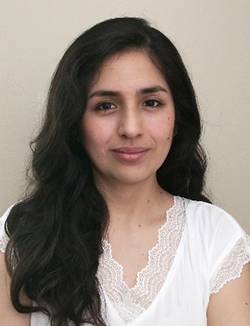
March 18, 2025
Presynaptic adaptations of co-transmitter neurons
Andrea Cuentas-Condori, Ph.D., Postdoctoral Fellow, Yale University
Andrea Cuentas-Condori, Ph.D., is a Postdoctoral Associate in the Laboratory of Daniel Colón-Ramos, Ph.D., at Yale University. Her scientific interests focus on understanding principles of neuronal cotransmission, the capacity of neurons to use more than one neurotransmitter. Leading a team of postgraduate scientists, they are developing an in vivo system using the model organism Caenorhabditis elegans to simultaneously track two populations of synaptic vesicles and understand how an animal’s experience can modulate the output of a neuron. The support of the Jane Coffin Childs Fund, the Pew Charitable Foundation, and the Howard Hughes Medical Institute has recognized the potential of her postdoctoral project and independent academic career. With support from the HHMI Hanna Gray Fellowship, her goal is to transition to an independent position where her group will continue to understand the cellular and circuit function of co-transmitter neurons.
Dr. Cuentas-Condori received a B.S. from Universidad Peruana Cayetano Heredia in Biological Sciences in her hometown of Lima, Peru. In 2013, through the Research Experience for Peruvian Undergraduates Program, she interned in the Laboratory of Andrea Page-McCaw, Ph.D., at Vanderbilt University. One year later, she began her Ph.D. at Vanderbilt University as a Fellow of the Vanderbilt International Scholars Program, under the mentorship of David M. Miller, Ph.D. During her Ph.D., she investigated the cellular and molecular determinants of presynaptic remodeling. She developed a new model to study postsynaptic spines in an in vivo system that is genetically tractable and amenable to live imaging. During her Ph.D., her work was supported by the American Heart Association and recognized by the Warren Lambert Memorial Award from the Vanderbilt Kennedy Center, as well as the DeLill Nasser Award from the Genetics Society of America.
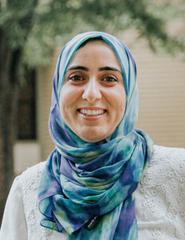
October 9, 2024
Bending the Arc: The Path to Justice in Brain Health
Altaf Saadi, M.D. M.Sc., FAAN, Assistant Professor of Neurology, Massachusetts General Hospital & Harvard Medical School
Dr. Altaf Saadi, MD, MSc, completed her undergraduate studies at Yale College and earned her medical degree from Harvard Medical School, where she graduated cum laude and received the Dean's Community Service Award. She then completed her residency in neurology at the Harvard Mass General Brigham MGH-BWH Residency program, where she also served as Chief Resident. Her research training includes a fellowship with the National Clinician Scholars Program at UCLA, where she conducted several health services research projects and received a master's degree in Health Policy and Management at the UCLA Fielding School of Public Health. Dr. Saadi's research focuses on neurologic health disparities and social and structural determinants of health among racial/ethnic minorities, immigrants, and refugees. She is committed to action-oriented, community-engaged and policy-relevant research that will improve the health outcomes for marginalized populations.
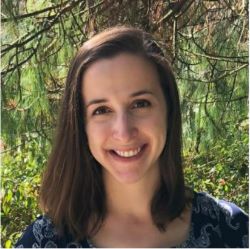
May 8, 2024
Flexible encoding of goals in the brain's cognitive map
Marielena Sosa, Ph.D., Postdoctoral Scholar, Neurobiology, Stanford University
Positive experiences must be remembered strongly to reinforce rewarding behaviors, and these memories must be able to update when knowledge of reward changes. How does the brain flexibly amplify memories of rewarding experiences while maintaining a stable representation of the external world? Using two-photon calcium imaging in mice, our work demonstrates that the hippocampus simultaneously represents the spatial environment and the animal’s position relative to reward in dissociable population codes. Notably, the code for experience relative to reward becomes stronger over learning as additional neurons are recruited to this representation. This work provides insight into how separate hippocampal ensembles may flexibly encode the most behaviorally relevant aspects of experience.
Dr. Mari Sosa is a postdoctoral scholar in Neurobiology in the laboratory of Dr. Lisa Giocomo at Stanford University. Her current research focuses on the neural dynamics of spatial navigation and reward memory. She earned her PhD in Neuroscience with Dr. Loren Frank at the University of California, San Francisco, supported by an F31 graduate fellowship from the NIMH. In her PhD work, Dr. Sosa used multi-region electrophysiology in behaving rats to study interactions between brain areas during spatial reward learning, uncovering how separate neuronal networks may store specific elements of experience. As a postdoc, Dr. Sosa applies large-scale neural recording techniques in the hippocampus and entorhinal cortex of rodents to investigate how neural circuits amplify rewarding memories. For this work, she was awarded a Helen Hay Whitney Foundation postdoctoral fellowship in 2021 and was named a Leading Edge Fellow in 2023. Her future research goal is to understand how changing physiological and behavioral demands shape the information retained in memory.
April 23, 2024
Exploring the interplay of vascular pathologies, Alzheimer's disease, and Lewy Body disease on harmonized cognitive measures
Cellas Hayes, Ph.D., Postdoctoral Scholar, Neurology and Neurological Sciences, Stanford University
Dr. Cellas Hayes completed his undergraduate degrees in Biology/Classics/Latin at the University of Mississippi in 2019. He continued his doctoral studies at his undergraduate alma mater and received his Ph.D. in Pharmaceutical Sciences with an emphasis in Pharmacology in the laboratory of Dr. Nicole Ashpole. Dr. Hayes was the first black trainee and the first trainee in 37 years to receive a NIH F31 at the University of Mississippi to study the cellular mechanisms of post-stroke neuroprotection of insulin-like growth factor-1 using in vitro and in vivo preclinical models.
While pursuing his Ph.D., he was admitted into the prestigious Smith Scholars program at the University of Mississippi Medical Center Graduate Educational Training Center. The Smith Scholars program afforded Dr. Hayes the opportunity to study systemic inflammation as a biomarker for non-fatal stroke incidence in the Jackson Heart Study using traditional epidemiology approaches and statistical analyses. Dr. Hayes became the first Black individual to receive a Ph.D. in Pharmaceutical Sciences from UM.
Dr. Hayes is currently a postdoctoral fellow in Dr. Michelle Odden laboratory at Stanford University. His research interest vascular contributions to cognition and biomarkers related to other neurodegenerative diseases such as Alzheimer’s Disease and Lewy Body Disease. Dr. Hayes’ research pursuits include understanding the comorbid associations of Alzheimer’s Disease and cerebrovascular disease in diverse populations with the hopes of identifying fluid biomarkers using multidimensional biological data and advanced biostatistics. Lastly, Dr. Hayes is also extremely passionate about increasing and maintaining diversity and inclusion in STEM fields through mentorship, service, and teaching.
Dr. Hayes’ presentation for the Neuroscience Futures Seminar Series will focus on his work quantifying the heterogenous contributions of cerebrovascular neuropathologies with Alzheimer’s disease and Lewy Body Disease in the National Alzheimer’s Coordination Center.
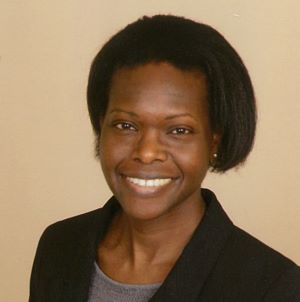
Tuesday, Mar. 12, 2024
Reducing post-stroke disability
Mellanie Springer, M.D., M.S., Assistant Professor, Neurology, University of Michigan
Stroke is a leading cause of disability. Neurologic and cognitive deficits are just a few of the adverse outcomes after stroke. This presentation will focus on our work identifying risk factors for post-stroke disability and ways to reduce post-stroke disability.
Dr. Mellanie Springer is an Assistant Professor of Neurology at the University of Michigan. She completed a Master’s Degree in Cognitive Neuroscience at the University of Toronto. Dr. Springer graduated from the Albert Einstein College of Medicine with an MD degree. She then completed residency training in Neurology and a fellowship in Vascular Neurology at Montefiore Medical Center in the Bronx, New York. Following her neurology training, Dr. Springer obtained a Master’s Degree in Clinical Research Methods. She is the recipient of an NIH K01 award to adapt and test an intervention to increase the intent to call 911 upon recognition of stroke symptoms in an underserved population

Monday, Oct. 16, 2023
Thalamo-striatal projections encoding motivated behavior
Sofia Beas, Ph.D., Assistant Professor, Neurobiology, University of Alabama at Birmingham
How motivational states drive actions to achieve goals is a fundamental question in neuroscience. However, this remains unclear despite extensive research on the role of the mesocorticolimbic systems orchestrating goal pursuits. We previously identified the paraventricular nucleus of the thalamus (PVT), especially its projections to the nucleus accumbens (NAc), as essential for instrumental behaviors. However, the precise role of this thalamo-striatal pathway in goal-oriented behaviors has been debated. Here, we characterize two distinct neuronal subpopulations in the PVT, termed Type1PVT and Type2PVT, which differ in their genetic identity, functionality, and connections. We reveal that these subpopulations form parallel thalamo-striatal pathways that encode different components of motivated behavior.
Dr. Sofia Beas is an Assistant Professor at the University of Alabama, Birmingham. The overall mission of her laboratory centers on increasing our understanding of the neural mechanisms underlying motivated behavior and identifying how these processes can be dysregulated in neuropsychiatric disorders. Dr. Beas first attained a Ph.D. in Neuroscience from the University of Florida. She then pursued a postdoctoral fellowship in the Unit on Neurobiology of Affective Behaviors at the National Institute of Mental Health (NIMH).
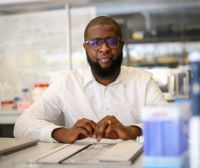
May 23, 2023
Behaviors and neural circuits for pleasure and pain in mice (password 32MjgYvS)
Ishmail Abdus-Saboor, Ph.D., Assistant Professor, Biological Sciences, Zuckerman Mind Brain Behavior Institute, Columbia University
The Abdus-Saboor lab wants to understand how the brain generates the perception of pain and pleasure based on sensory stimuli applied to the skin. Working in mice and naked mole-rats, they are integrating the peripheral and central nervous systems, seeking to uncover genes and neural circuits for somatosensation from the skin to the spinal cord and brain.
Dr. Abdus-Saboor received his Ph.D. in Cell and Molecular Biology at the University of Pennsylvania with Meera Sundaram. Following training in developmental genetics, he moved into sensory neuroscience as a postdoc at Cornell and back at the University of Pennsylvania, with Benjamin Shykind and Wenqin Luo, respectively. Ishmail has received many honors including an NIH K99/R00 Pathway to Independence Award and Burroughs Wellcome Fund PDEP Fellowship as a postdoc. Since opening his lab, he has been named a Rita Allen Foundation Scholar, Alfred P. Sloan Foundation Fellow, Pew Biomedical Scholar, and a recipient of the NIH DP2 New Innovator Award and Chan Zuckerberg Initiative Science Diversity Leadership Award.

Mar. 21, 2023
Elucidating the Mechanism underlying Stress and Caffeine-Induced Motor Dysfunction using a Mouse Model of Episodic Ataxia Type 2 (password mGJe5smE)
Heather Snell, Ph.D., Associate Researcher, Department of Neuroscience, Albert Einstein College of Medicine
Dr. Heather Snell completed her undergraduate degrees in Biochemistry and English literature at Louisiana State University. She then returned home to Fort Worth, Texas, to complete her Ph.D. at the University of North Texas Health Science Center in the laboratory of Dr. Eric B. Gonzales. Her work combined cellular biology with pharmacology, receptor modeling, and whole cell electrophysiology to investigate the interactions of the GABAA ρ1 receptor with a class of drugs called guainidine compounds which block acid sensing ion channels (ASICS). Her current work, first as a Postdoctoral Fellow and now as an Associate Researcher at Albert Einstein College of Medicine in the laboratory of Dr. Kamran Khodakhah, focuses on understanding the receptors and channels underlying the intrinsic activity of the GABAergic cerebellar Purkinje cells in health, but also in cerebellar disorders, such as the most common form of Episodic Ataxia, Episodic Ataxia Type 2 (EA2).
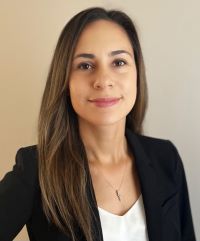
Jan. 10, 2023
Neurodevelopment in Autism and Related Childhood Disorders: From Genes to Complex Phenotypes (password pNRRaph5)
Leanna Hernandez, Ph.D., Postdoctoral Fellow, Department of Psychiatry and Biobehavioral Sciences, UCLA
Neurodevelopmental disorders, including autism and schizophrenia, are etiologically complex and characterized by diverse clinical and neurobiological features. This intrinsic heterogeneity makes it very challenging to identify early biomarkers of disease risk and develop targeted treatments. In this talk, Leanna Hernandez, Ph.D., presented her work using a genetics-first approach to 1) parse neurobiological heterogeneity in autism and related childhood disorders, 2) understand the shared genetic etiology between co-occurring conditions, and 3) identify early brain-based biomarkers of risk for future psychiatric symptoms.

Oct. 12, 2022
Minute-scale oscillatory sequences in medial entorhinal cortex (password aJFG63Gg)
Soledad Gonzalo Cogno, Ph.D., postdoctoral fellow, Moser lab, Kavli Institute for Systems Neuroscience, Trondheim, Norway
Soledad Gonzalo Cogno, Ph.D., received her undergraduate degree in physics and her Ph.D. in computational neuroscience from the Balseiro Institute, Argentina. Her work is focused on understanding the network dynamics that emerge in the medial entorhinal cortex during sensory-minimized conditions.
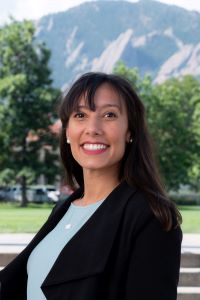
June 14, 2022
Integrating behavioral, electrophysiological and computational approaches for improved understanding of brain dynamics: from epilepsy to decision-making (password rZuZUkA5)
Tahra Eissa, Ph.D., Research Associate, Department of Applied Math, University of Colorado Boulder
Dr. Tahra Eissa completed her undergraduate degree in bioengineering at Cornell University, motivated by her work with the special needs community. Her graduate work at the University of Chicago with Dr. Wim van Drongelen and initial postdoc at Columbia University with Dr. Catherine Schevon focused on identifying biomarkers for locating the seizure focus in epilepsy patients. Her current postdoctoral position at University of Colorado Boulder with Dr. Zachary Kilpatrick pivoted her focus to study how humans adapt their decision-making strategies to their environment, and she is now combining these two interests to study how the brain implements these flexible strategies and what happens when there are cognitive deficits.
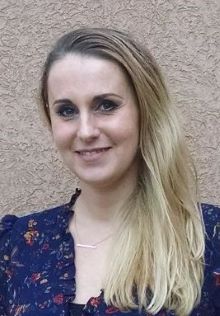
May 10, 2022
Wired for touch: New discoveries about the sense that binds us to others (password XtDggir2)
Victoria Abraira, Ph.D., Assistant professor, W.M. Keck Center for Collaborative Neuroscience, Rutgers University
Dr. Victoria Abraira received her undergraduate degree in Biological Sciences from the University of Southern California and her graduate degree in Neuroscience from Harvard University. As a postdoctoral fellow at Johns Hopkins/Harvard Medical School, she set out to understand the cellular and synaptic substrates underlying innocuous touch perception by elucidating the functional organization of sensory neurons in mouse hairy skin and uncovering the neural codes of touch perception in the spinal cord dorsal horn.
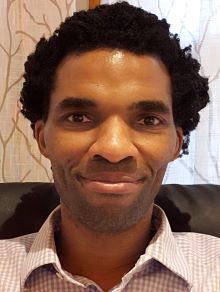
January 11, 2022
Here, There, and Everywhere: Molecular mechanisms of cholinergic synaptic transmission during aging
Hakeem Lawal, Ph.D., Associate Professor and Vice Chair, Department of Biological Sciences, Delaware State University
The second speaker in the series on January 11, 2022, was Hakeem Lawal of Delaware State, a historically black college and university (HBCU). He presented his story and his work on cholinergic transmission in Drosophila. Dr. Lawal's personal story as he related in his talk is his - from Nigeria to Alabama to UCLA to Delaware State - but it illustrates obstacles that exist. His example to give back as a role model and mentor are impressive, and provide lessons for us all.
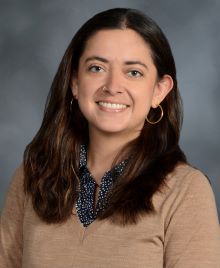
October 26, 2021
Role of perivascular macrophages in neurovascular dysfunction induced by hypertension
Monica Santisteban, Ph.D., Leon Levy Research Fellow, Weill Cornell Medical
The inaugural speaker in the series on October 26, 2021, featured Monica Santisteban from Weill Cornell Medical College. She talked about her research on the role of perivascular macrophages in neurovascular dysfunction and cognitive impairment in hypertension. Dr. Santisteban is a native of Costa Rica and moved with her family to Florida as a teen, where her undergraduate mentor supported and encouraged her to apply to graduate programs. After a very productive training and with support from her PhD and postdoctoral mentors, she started her independently funded research program in 2020. Her journey to science emphasizes the importance of good mentorship in scientific training, particularly for minority students.